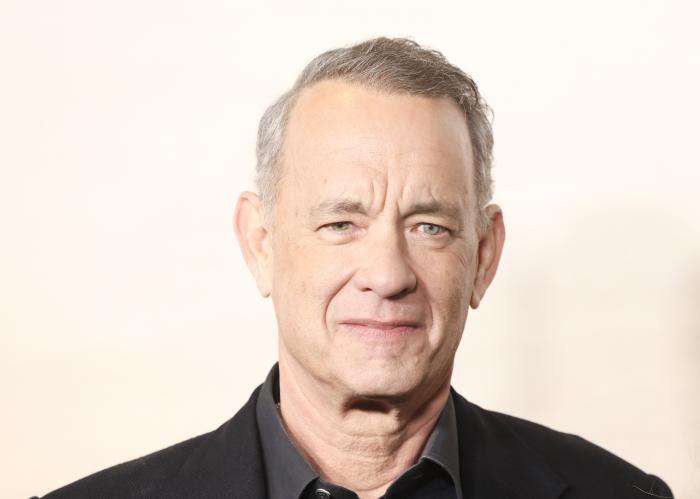

Somebody’s Gotta Do It
By Brian Prisco | Film | November 24, 2009 |
By Brian Prisco | Film | November 24, 2009 |
I’ve spent a lot of time walking around art museums. Sometimes you’ll walk through a particular display, several paintings by artists of no particular note, and pause for a moment. You aren’t studying or appreciating so much as just looking. You can recognize talent, even the artistry behind the brushstrokes, or maybe a minor note or two on the detail in the background. And then you walk on to the next one in line, pretty much forgetting anything about it. Such is the case with Oren Moverman’s The Messenger, a decent-enough Gulf War drama with solid performances that sort of meanders through a bizarre love dodecahedron with amiable grace and then bows out at the end. There’s absolutely nothing wrong with the film — in fact, it’s very thought-provoking if anything else, blending humor and pathos not deftly, but rather like a careless driver swerving between lanes with no signal. Perhaps it’s my lack of proximity to the military — at best I can claim a cousin’s husband and a father with Vietnam scars — but that didn’t stop me from tensing at the outstanding The Hurt Locker. The Messenger’s just good in a season of great.
Fresh from injuries sustained during a rescue, Staff Sergeant Will Montgomery (Ben Foster) is tapped by the Army to run out his remaining three months on the Casualty Notification Team. Tasked with the unpleasant duty of notifying the next of kin that their loved ones are deceased, the Casualty Notification Team is perfect for mining the kind of indie-film lamentations that awards season adores. Will is paired with Tony Stone (Woody Harrelson), a Jesse Ventura-jawed loner who recognizes that he’s the head shovel on the shit crew and not everyone can hack the morbid duty. It’s reminiscent of the gravediggers in Hamlet, a gallows humor-type approach to a job so uncomprehensibly awful. A magnificent dichotomy comes from adhering to a strict script and by-the-book regulations: spouting off specific terms and statements in order to ensure you aren’t dehumanizing or dishonoring the person who lost their life. Never say “loss” or refer to the “deceased.” Never embrace the NOK (next of kin in the military jargon). There’s a sinister sense of humor to the film, black comedy in the blackest of tasks.
But it’s easy to forget that when you are dealing with gallows humor, someone has to be hung. The actual notifications are heart-rending and fascinating in their portrayals. Moverman and his co-writer Alessandro Camon put incredible amounts of thought into avoiding just the cliched door-knock and collapse. A mother slaps them to shut them up, as if stopping the words can prevent what already happened. Steve Buscemi is haunting as a furious father who spits in their faces and curses them as cowards. He asks why they aren’t over there, dying instead of his son. A father discovers his daughter — Halley Feiffer proving she’s better than that awful Gentlemen Broncos — secretly got married just as she discovers that her husband is dead. It’s not just people weeping and falling on their knees screaming why, but captivating moments taken from unobvious angles.
If only the film had stayed focused on the notifications and how it raises the demons in Stone and Montgomery, it might have been a more powerful picture. Where it lost me was in the love story. Montgomery had a steady girlfriend Kelly (Jena Malone), who he broke up with to prevent her having to receive one of his courtesy calls. Kelly still loves Will, still sneaks off to clandestine dinners and hotel screw-sessions, but she’s engaged to Alan, who she also loves. Meanwhile, on one of his notifications, Will meets Olivia (Samantha Morton), a now-widowed mother who actually shakes their hands and apologizes for how difficult a job they must have. Will begins following Olivia and strikes up an unusual friendship that never manifests itself comfortably. Both relationships are intriguing. The notion of the war bride mentality — you’re dying in the desert while she’s falling for someone else. And the idea of the taboo on scavenging a war widow, particularly when your notifications are the ones that for all intents and purposes made her that way. When coupled with Tony Stone’s insistence on boning random gals or bartenders while Will silently pines for two women he can’t have, it makes for interesting drama. However, the entire Olivia cycle floats on this strange undercurrent of awkwardness, which never really gets capitalized on. Particularly when there doesn’t seem to be any sort of oblique reasoning behind Will’s infatuation with Olivia in the first place.
The performances are all excellent, if not perhaps a little super-hyped in the time of the bald golden head nods everyone’s trying to clamor for right now. Ben Foster is a superb actor, and his Will Montgomery is complex. He lashes out with rage and sadness and leering grins, all while feeling barely tethered to a somber sort of quiet endurance. It’s like watching a brown paper box sitting unattended under an airport bench. You’re not sure if it’s going to explode or if some desperate person’s going to scramble back to snatch it before their flight, or if a fucking Mogwai’s going to pop out in a top hat and cane. When Will relates the story of how he was injured in Iraq, most other movies might have gone the reenactment route, but Foster is able to embody all the horror just sitting on the couch in a wifebeater drinking a beer. He’s nicely complimented by Woody Harrelson’s Tony Stone. Stone’s a hardass with a loser edge. It’s a lonely job he’s been performing for several years — long after his enlistment period wrapped. He’s just as stubborn and fucked up as Will, but with a cynicism and dedication born from years at the task. I never would have suspected Harrelson had the depth to pull off a character with so many facets, but he impressed me. Either actor could get recognized for the role without it seeming undeserved, but neither performance was such that it’s a guaranteed lock.
The supporting cast was also fantastic, if understandably underused. It’s Harrelson and Foster’s pic, but the rest of the cast steps up and does spectacularly. I simply adore Samantha Morton the more I watch her on screen, mostly because she’s got this natural beauty without the unnatural body. She’s so sweet you want to hug her and keep her safe, no matter what the role. She’s like Pam from “The Office” with gravitas. As much as I love Jena Malone, she’s given a really subpar role. It struck me more like the Anne-Hathaway-does-Havoc-to-break-free-from-the Princess-Diaries-and-a-bra role. Malone’s been taking tons of indie roles lately to kind of create an Ellen Page buzz without any of the same humor or unbridled fun. Malone’s Kelly gets one wild sex scene, and then she’s left to basically shake her head and frown for the rest of the film.
Moverman gets plenty of plates spinning by the middle of the film, but they come crashing down by the end. He spends most of the movie building up these wonderful and lush plot threads, only to quickly and dreadfully snip them at the end. I almost wish things hadn’t been resolved instead of the shoddy slapdash treatment they are given. The man pretty much wrote himself a blank check after penning I’m Not There, but all I could think was “This is what you bought?” The Messenger isn’t the kind of film that will stay with you long enough to bother you. Like a really impassioned political speech or particularly well-written snippet on “The Daily Show,” it’ll get you nodding your head and pondering the implications and complexities of the situation. And then when “South Park” comes on possibly riffing on tampons as Twilight teabags, you’ll pretty much forget everything about it.
More Like This
'Hundreds of Beavers' Turns the Silent Movie Wackiness Up To Eleven
Review: ‘Greedy People’ Really Wants to be a Coen Brothers Film When it Grows Up
A Box Office Preview of the Deadest Movie Weekend of the Year
Review: Sweet Sticky 'Strange Darling' Is Rom-Com For Psychopaths
Julia Fox Manifested Her Latest Role

Tom Hanks Is Not Trying To Sell You Drugs
Three Trailers: What Happened Before Rosemary's Baby, and Zoe Saldaña In Her Own Skin
Jack White Threatens 'Fascists' In Donald Trump's Campaign With A Lawsuit
Taylor Swift Has a Brittany Mahomes Problem
'The Acolyte's Amandla Stenberg Got Thrown to the Wolves
Christina Aguilera Thinks It’s ‘Corny’ When Celebrities ‘Do Things Intentionally’ to Stay Relevant
Pajiba Love

Taylor Swift Has a Brittany Mahomes Problem
Reviews